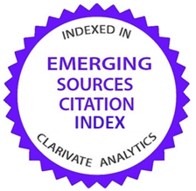Soberanías compartidas, gobernanzas criminales y desafíos al modelo de Estado en Colombia
DOI:
https://doi.org/10.21830/19006586.1232Palabras clave:
Estado, gobernanza criminal, seguridad, soberanía, soberanías compartidasResumen
La persistencia y actividad de grupos ilegales en Colombia se puede explicar a través de la inviabilidad del concepto tradicional del Estado moderno. El objetivo de este artículo es analizar cómo los principios fundamentales de la soberanía y la gobernanza que implica la idea del Estado moderno son menoscabados por la presencia endémica de estructuras ilegales en Colombia. Mediante una aproximación metodológica ecléctica e híbrida, se muestra cómo se han configurado en el país algunas soberanías compartidas y gobernanzas criminales, en especial tras la desmovilización de las FARC-EP y la disipación de la agenda de seguridad nacional respecto a sus objetivos. Se concluye que Colombia debe continuar en la senda de la cohesión, para consolidar sus intereses nacionales y proteger la ciudadanía.
Descargas
Referencias bibliográficas
Abrahamsen, R., & Sandor, A. (2018). The Global South and international security. Oxford University Press. https://doi.org/10.1093/oxfordhb/9780198777854.013.25
Agnew, J. (2005). Sovereignty regimes: Territoriality and state authority in contemporary world politics. Annals of the Association of American Geographers, 95(2), 437-461. http://www.jstor.org/stable/3694127
Aguilar-Forero, N. (2022). Memoria y juvenicidio en el estallido social de Colombia (2021). Revista Latinoamericana de Ciencias Sociales, Niñez y Juventud, 20(3), 1-27. https://doi.org/10.11600/rlcsnj.20.3.5492
Alvarado, N., Norza, E., Pérez-Vincent, S. M., Tobón, S., & Vanegas-Arias, M. (2020). Evolución de la seguridad ciudadana en Colombia en tiempos del COVID-19. Inter-American Development Bank. https://doi.org/10.18235/0002780
Alzate-Zuluaga, M. L., & Jiménez-García, W. G. (2021). Rackets and the markets of violence: A case study of Altavista, Medellín, Colombia. Latin American Perspectives, 48(1), 28-41. https://doi.org/10.1177/0094582X20975012
Anders, T. (2020). Territorial control in civil wars: Theory and measurement using machine learning. Journal of Peace Research, 57(6), 701-714. https://doi.org/10.1177/0022343320959687
Arias, E. D. (2006). The dynamics of criminal governance: Networks and social order in Rio de Janeiro. Journal of Latin American Studies, 38(2), 293-325. https://doi.org/10.1017/s0022216x06000721
Arias, E. D. (2017). Criminal enterprises and governance in Latin America and the Caribbean. En Criminal enterprises and governance in Latin America and the Caribbean (pp. 1-2). Cambridge University Press. https://doi.org/10.1017/9781316650073
Arjona, A. (2016). Rebelocracy: Social order in the Colombian civil war (Cambridge Studies in Comparative Politics). Cambridge University Press. https://doi.org/10.1017/9781316421925
Asmal, K., Asmal, L., & Roberts, R. (1997). Reconciliation through truth: A reckoning of apartheid's criminal governance. New Africa Books.
Badillo, R., & Mijares, V. M. (2021). Politicised crime: Causes for the discursive politicisation of organised crime in Latin America. Global Crime, 22(4), 312-335. https://doi.org/10.1080/17440572.2021.2024804
Badrán, F., & Niño, C. (2020). Seguridad nacional de Colombia: Aproximación crítica a los contrasentidos misionales. Pensamiento Propio, 51, 103-118.
Banton, M. (1995). Rational choice theories. The American Behavioral Scientist, 38(3), 478-497. https://doi.org/10.1177/0002764295038003008
BBC News Mundo. (2022, 9 de mayo). Paro armado en Colombia: 5 claves para entender las acciones violentas con las que el Clan del Golfo paralizó parte de Colombia. BBC. https://www.bbc.com/mundo/noticias-america-latina-61385661
Beach, D., & Pedersen, R. B. (2019). Process-tracing methods: Foundations and guidelines. University of Michigan Press.
Biersteker, T. J., & Weber, C. (1996). The social construction of state sovereignty. En State sovereignty as social construct (pp. 1-21). Cambridge University Press. https://doi.org/10.1017/CBO9780511598685.001
Blaney, D. L., & Tickner, A. B. (2017). Worlding, ontological politics and the possibility of a decolonial IR. Millennium, 45(3), 293-311. https://doi.org/10.1177/0305829817702446
Blattman, C., Duncan, G., Lessing, B., & Tobón, S. (2021). Gang rule: Understanding and countering criminal governance. SocArXiv. https://doi.org/10.31235/osf.io/5nyqs
Blu Radio. (2022, 16 de enero). Polémica por presencia del ELN en municipio de Arauca cerca donde Iván Duque daba un discurso. https://bit.ly/3GaPXmg
Buitrago, F. L. (1992). Surgimiento, auge y crisis de la doctrina de seguridad nacional en América Latina y Colombia. Análisis Político, 15, 6-34. https://revistas.unal.edu.co/index.php/anpol/article/view/74379
Bushnell, D., & Montilla, C. (2007). Colombia: una nación a pesar de sí misma: Nuestra historia desde los tiempos precolombinos hasta hoy. https://biblioteca.inci.gov.co/handle/inci/18971
Canter, D., & Youngs, D. (2016). Crime and society. Contemporary Social Science, 11(4), 283-288. https://doi.org/10.1080/21582041.2016.1259495
Castañeda, A. & Niño, C. (2020). El proceso de desecuritización de la doctrina militar en Colombia. América Latina Hoy, 84, 31-47. https://doi.org/10.14201/alh.21021
Chandler, J. A. (1975). Spain and her Moroccan protectorate 1898-1927. Journal of Contemporary History, 10(2), 301-322. https://doi.org/10.1177/002200947501000205
Checkel, J. T., & Bennett, A. (2015). Process tracing: From metaphor to analytic tool. Cambridge University Press.
Chua, B., & Ho, E. (2023). Introduction: Global literary adaptation in the twenty-first century. En The Routledge Companion to global literary adaptation in the Twenty-First Century (pp. 1-15). Routledge.
Ciorciari, J. D. (2021). Sovereignty sharing in fragile states. Stanford University Press. https://doi.org/10.1515/9781503614284
Cohan, J. A. (2006). Sovereignty in a postsovereign world. Florida Journal of International Law, 18(3), 5.
Comisión Interamericana de Derechos Humanos. (2023). Observaciones y recomendaciones: Visita de trabajo a Colombia. OEA. https://www.oas.org/es/cidh/informes/IA.asp
Constitución Política de Colombia. (1991). Gaceta Constitucional n.º 116. http://bit.ly/2NA2BRg
Croxton, D. (1999). The peace of Westphalia of 1648 and the origins of sovereignty. The International History Review, 21(3), 569-591. https://doi.org/10.1080/07075332.1999.9640869
Dallanegra Pedraza, L. (2012). Claves de la política exterior de Colombia. Latinoamérica. Revista de Estudios Latinoamericanos, 54(1), 37-54.
Daza, J. D. (2021). Gobernanza criminal: Cogobiernos entre políticos y paramilitares en Colombia. Revista Mexicana de Ciencias Políticas y Sociales, 66(241). https://doi.org/10.22201/fcpys.2448492xe.2020.241.75094
Dejusticia. (2022, 8 de febrero). 5 preguntas para entender el estado de cosas inconstitucional por la inseguridad de excombatientes. https://bit.ly/47sfp2w
Devigne, R. (2022). Hegel’s Modern State and the interrelation of internal and external sovereignty. History of Political Thought, 43(4), 759-786.
Domínguez, M. M. (2022, 8 de mayo). Paro armado en Colombia: el fracaso de la política de seguridad del Gobierno, según analistas. France 24. https://tinyurl.com/5cwpk786
Duncan, G. (2014). Más que plata o plomo: el poder político del narcotráfico en Colombia y México. Debate.
Durante, R., & Zhuravskaya, E. (2018). Attack when the world is not watching? US news and the Israeli-Palestinian conflict. The Journal of Political Economy, 126(3), 1085-1133. https://doi.org/10.1086/697202
Dusza, K. (1989). Max Weber’s conception of the state. International Journal of Politics, Culture, and Society, 3(1), 71-105. http://www.jstor.org/stable/20006938
Duzán, M. J. (2022, 10 de mayo). El paro armado y el fantasma de Pablo Escobar. El País. https://bit.ly/3sLnMao
Dwyer, R. E. (2014). Expanding homes and increasing inequalities: U.S. housing development and the residential segregation of the affluent. Social Problems, 54(1), 23-46. https://doi.org/10.1525/sp.2007.54.1.23
Eco, U. (2013). Inventing the enemy: And other occasional writings. Houghton Mifflin.
EFE. (2022, 3 de marzo). En 2021 aumentaron las masacres en Colombia, con 78, según la ONU. SWI. https://tinyurl.com/3akcdaxc
Eriksen, S. S. (2011). “State failure” in theory and practice: the idea of the state and the contradictions of state formation. Kokusaigaku Revyu = Obirin Review of International Studies, 37(1), 229-247. http://www.jstor.org/stable/23024592
Falleti, T. G., & Mahoney, J. (2015). The comparative sequential method. En Advances in comparative-historical analysis (pp. 211-239). Cambridge University Press. https://doi.org/10.1017/CBO9781316273104.009
Grimm, S., Lemay-Hébert, N., & Nay, O. (2014). “Fragile States”: introducing a political concept. Third World Quarterly, 35(2), 197-209. https://doi.org/10.1080/01436597.2013.878127
Guerin, B., & Innes, J. M. (1984). Explanations of social facilitation: A review. Current Psychological Research & Reviews, 3(2), 32-52. https://doi.org/10.1007/BF02686548
Guerrero, H. (2012). El involucramiento internacional en la gestión del conflicto colombiano durante los gobiernos de Andrés Pastrana y Álvaro Uribe (1998-2010): entre la falta de voluntad y la injerencia consentida [tesis doctoral, Universidad Complutense de Madrid].
Guerrero, H., & Melamed, J. (2013). Las nuevas guerras: algunas consideraciones críticas acerca de esta categoría conceptual. Academia y Virtualidad, 6(1), 146-156. https://bit.ly/46nffIA
Guerrero, H., & Wilches, J. (2021). Resurgimiento de expresiones paramilitares en Colombia: una crónica anunciada. En D. Gónzalez (Ed.), De Angostura a La Habana: doscientos años buscando la paz en Colombia (pp. 146-201). Editorial Unigranadina.
Gutiérrez Sanín, F. (2008). Telling the difference: Guerrillas and paramilitaries in the Colombian war. Politics & Society, 36(1), 3-34. https://doi.org/10.1177/0032329207312181
Heng, Y.-K. (2020). Small states. En Oxford Research Encyclopedia of International Studies. Oxford University Press. https://doi.org/10.1093/acrefore/9780190846626.013.545
Huntington, S. P. (2012). The third wave: Democratization in the late 20th century. University of Oklahoma Press.
Jackson, R. H. (1987). Quasi-states, dual regimes, and neoclassical theory: International jurisprudence and the Third World. International Organization, 41(4), 519-549. http://www.jstor.org/stable/2706757
Jackson, R. H. (1990). Quasi-states: Sovereignty, international relations and the Third World. Cambridge University Press.
Kalyvas, S. (2006). The logic of violence in civil war (Cambridge Studies in Comparative Politics). Cambridge University Press. https://doi.org/10.1017/CBO9780511818462
Kasfir, N. (2015). Rebel governance – Constructing a field of inquiry: Definitions, scope, patterns, order, causes. En A. Arjona, N. Kasfir, & Z. Mampilly (Eds.), Rebel Governance in Civil War (pp. 21-46). Cambridge University Press. https://doi.org/10.1017/CBO9781316182468.002
Kay, S. (2004). Globalization, power, and security. Security Dialogue, 35(1), 9-25. https://doi.org/10.1177/0967010604042533
Kohen, M. G. (2016). Territoriality and international law. Edward Elgar Publishing Limited.
Krasner, S. D. (2004). Sharing sovereignty: New institutions for collapsed and failing states. International Security, 29(2), 85-120. http://www.jstor.org/stable/4137587
Leal Buitrago, F. (1992). Surgimiento, auge y crisis de la doctrina de seguridad nacional en América Latina y Colombia. Análisis Político, 15, 6-34.
Long, T. (2016). Small states, great power? Gaining influence through intrinsic, derivative, and collective power. International Studies Review, 19(2), 185-205. https://doi.org/10.1093/isr/viw040
López, E. (2023). Sistema jurídico focalizado y normatividad disruptiva: estudio de la experiencia jurídica COVID-19. Tirant Lo Blanch.
MacCormick, N. (1999). On sovereignty and post-sovereignty. En Questioning Sovereignty: Law, State, and Nation in the European Commonwealth (pp. 123-136). Oxford University Press. https://doi.org/d8vw5p
Mantilla, G. (2023). Deflective cooperation: Social pressure and forum management in Cold War conventional arms control. International Organization, 1-35. https://doi.org/10.1017/S0020818322000364
McVeigh, S. (2021). Sovereignty. En M. Valverde, K. Clarke, E. Darian-Smith, & P. Kotiswaran (Eds.), Routledge handbook of law and society (pp. 221-224). Routledge.
Meagher, K. (2012). The strength of weak states? Non-state security forces and hybrid governance in Africa. Development and Change, 43(5), 1073-1101. https://doi.org/10.1111/j.1467-7660.2012.01794.x
Melo, J. O. (2017). Historia mínima de Colombia. El Colegio de Mexico.
Melo, J. O. (2021). Colombia: las razones de la guerra. Crítica.
Mitzen, J. (2006). Ontological security in world politics: State identity and the security dilemma. European Journal of International Relations, 12(3), 341-370. https://doi.org/10.1177/1354066106067346
Morgenthau, H. (1948). Politics among nations the struggle for power and peace. Alfred Knopf.
Nay, O. (2013). Fragile and failed states: Critical perspectives on conceptual hybrids. International Political Science Review, 34(3), 326-341. https://doi.org/10.1177/0192512113480054
Nieto-Matiz, C. (2022). When the state becomes complicit: Mayors, criminal actors, and the deliberate weakening of the local state in Colombia. Comparative Political Studies, 56(9). https://doi.org/10.1177/00104140221139380
Niño, C. (2021, 7 de junio). La militarización es una apuesta equivocada. Razón Pública. https://tinyurl.com/28sw7y7k
Niño, C., & Castillo, A. (2021). La transformación de la seguridad en Colombia tras el Acuerdo de Paz con las FARC-EP. Opera, 30, 79-98. https://doi.org/10.18601/16578651.n30.06
Niño, C., & González, C. (2022). Phantom state in Haiti: Criminal sovereignty and the mercenary remedy. Trends in Organized Crime. https://doi.org/10.1007/s12117-022-09460-3
Niño, C., & Palma Álvarez, D. (2017). Seguridad en Colombia: de la rigidez a la pos-seguridad. En J. Cubides & J. Jiménez (Coords.), Desafíos para la seguridad y defensa nacional de Colombia: teoría y praxis (pp. 159-176). Sello Editorial ESDEG. https://dialnet.unirioja.es/servlet/articulo?codigo=8103817
Osaghae, E. E. (2007). Fragile states. Development in Practice, 17(4-5), 691-699. https://doi.org/10.1080/09614520701470060
Patrick, S. (2007). “Failed” states and global security: Empirical questions and policy dilemmas. International Studies Review, 9(4), 644-662. http://www.jstor.org/stable/4621865
Pécaut, D. (2004). Tradición liberal, autoridad y autoritarismo. Política, 42, 59-85. https://www.redalyc.org/pdf/645/64504205.pdf
Pécaut, D. (2021). Entre polarización política y protesta social. Análisis Político, 34(102), 175-189. https://doi.org/10.15446/anpol.v34n102.99940
Pinto-Quijano, A., Castiblanco-Moreno, S., & Hernández-Perez, M. (2022). Liderazgo social como sentencia de muerte: El posacuerdo en Colombia. Perfiles Latinoamericanos, 30(60), 1-31. https://doi.org/10.18504/pl3060-012-2022
Purinton, M. D. (2023). The science of life and death in “Frankenstein”. European Romantic Review, 34(1), 107-112. https://doi.org/10.1080/10509585.2023.2158550
Quiroga, E. (2019). Hermenéutica constitucional: El modelo de equilibrio para la decisión judicial-constitucional. Ediciones Nueva Jurídica.
Rauta, V. (2016). Proxy agents, auxiliary forces, and sovereign defection: Assessing the outcomes of using non-state actors in civil conflicts. Southeast European and Black Sea Studies, 16(1), 91-111. https://doi.org/10.1080/14683857.2016.1148416
Rees, W. J. (1950). The theory of sovereignty restated. Mind; a Quarterly Review of Psychology and Philosophy, 59(236), 495-521. https://www.jstor.org/stable/2251302
Ríos Sierra, J., & Gago Antón, E. (2018). Realidades y desafíos de la paz territorial en Colombia. Papers, 103(2), 281. https://doi.org/10.5565/rev/papers.2361
Ríos, J., & González, J. C. (2021). Colombia y el Acuerdo de Paz con las FARC-EP: Entre la paz territorial que no llega y la violencia que no cesa. Revista Española de Ciencia Política, 55, 63-91. https://doi.org/10.21308/recp.55.03
Ríos, J., & Niño, C. (2021). Dinámicas de la inseguridad y la violencia durante la pandemia en Colombia. UNISCI, 56, 95-115. https://doi.org/10.31439/UNISCI-118
Ronderos, S., & Marín-López, D. (2022). Rebels at war, criminals in peace: A critical approach to violence in Colombia. Rethinking Marxism, 34(1), 99-115. https://doi.org/10.1080/08935696.2021.1999764
Rothe, D. L., & Mullins, C. W. (2010). The death of state sovereignty? An empirical exploration. International Journal of Comparative and Applied Criminal Justice, 34(1), 79-96. https://doi.org/10.1080/01924036.2010.9678818
Sánchez, F., & Niño, C. (2023). The paradox of COVID-19 in Colombia: A resilience issue. En P. Baisotti & P. Moscuzza (Eds.), Reframing globalization after COVID-19: Pandemic diplomacy amid the failure of multilateral cooperation (pp. 224-237). Liverpool University Press.
Schultze-Kraft, M. (2016). Órdenes crimilegales: repensando el poder político del crimen organizado. Íconos. Revista de Ciencias Sociales, 55, 25-44. https://doi.org/10.17141/iconos.55.2016.1899
Shepsle, K. A. (2008). Rational choice institutionalism. En S. Binder, R. Rhodes, & B. Rockman (Eds.), The Oxford handbook of political institutions (pp. 23-38). Oxford University Press. https://doi.org/10.1093/oxfordhb/9780199548460.003.0002
Skaperdas, S. (2001). The political economy of organized crime: Providing protection when the state does not. Economics of Governance, 2(3), 173-202. https://doi.org/10.1007/PL00011026
Spruyt, H. (1994). The sovereign state and its competitors: An analysis of systems change. Princeton University Press. https://doi.org/10.2307/j.ctvzxx91t
Spruyt, H. (2002). The origins, development, and possible decline of the modern state. Annual Review of Political Science, 5(1), 127-149. https://doi.org/10.1146/annurev.polisci.5.101501.145837
Stoker, G. (1998). Governance as theory: Five propositions. International Social Science Journal, 50(155), 17-28. https://doi.org/10.1111/1468-2451.00106
Thomson, R. S. (1945). The establishment of the French protectorate over Cambodia. The Far Eastern Quarterly, 4(4), 313-340. https://doi.org/10.2307/2049693
Tickner, K., & Smith, K. (2020). International Relations from the Global South (1st ed.). Routledge. https://doi.org/10.4324/9781315756233
Tilly, C. (2017). War making and state making as organized crime. En E. Castañeda & C. Schneider (Eds.), Collective violence, contentious politics, and social change (pp. 121-139). Routledge. https://bit.ly/40YuKFS
Uprimny, R. (2021). Protesta, proporcionalidad y bloqueos: A propósito del decreto 575. DeJusticia.
Uribe, M. V. (2020). Violence as a symptom: The case of Colombia. International Journal of Conflict and Violence, 1(1), 8-20. https://doi.org/10.1177/2633002420907790
Valenzuela, P., & Caicedo, S. (2018). Environmental peacebuilding in post-conflict Colombia. En Routledge handbook of environmental. Routledge.
Van Staden, A., & Vollaard, H. (2002). The erosion of state sovereignty: Towards a post-territorial world? En G. Kreijen (Ed.), State, sovereignty, and international governance (pp. 164-184). Oxford University Press. https://doi.org/10.1093/acprof:oso/9780199245383.003.0006
Vivanco, J. M. (2020, 15 de julio). Colombia: Brutales medidas de grupos armados contra Covid-19. Human Rights Watch. https://tinyurl.com/yc582fj7
Weber, M. (1978). Economy and society: An outline of interpretive sociology. University of California Press.
Weber, M. (2022). Politik als Beruf. BoD.
Wilches, J., Ruiz X., & Guerrero, H. (2020). Estados en pandemia y narcopopulismos reinventados: Consolidación del “narco” como orientador de sociedades ilegales, pero legítimas. Análisis Político, 33(100), 146-166. https://doi.org/10.15446/anpol.v33n100.93409
Zürcher, C. (2013). Rebel rulers: Insurgent governance and civilian life during war. African Affairs, 112(449), 683-684. https://doi.org/10.1093/afraf/adt063
Descargas
Publicado
Cómo citar
Número
Sección
Licencia
Derechos de autor 2023 Revista Científica General José María Córdova

Esta obra está bajo una licencia internacional Creative Commons Atribución-NoComercial-SinDerivadas 4.0.
| Estadísticas de artículo | |
|---|---|
| Vistas de resúmenes | |
| Vistas de PDF | |
| Descargas de PDF | |
| Vistas de HTML | |
| Otras vistas | |

























